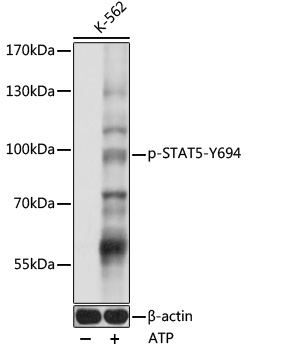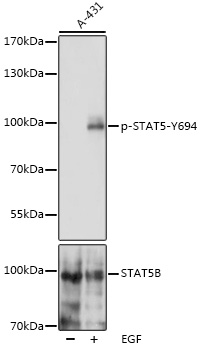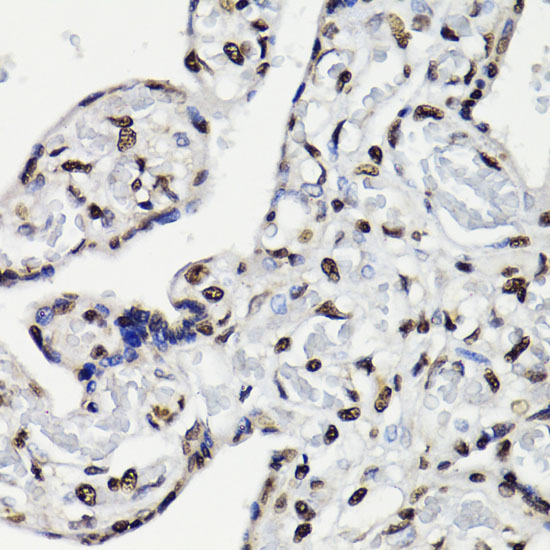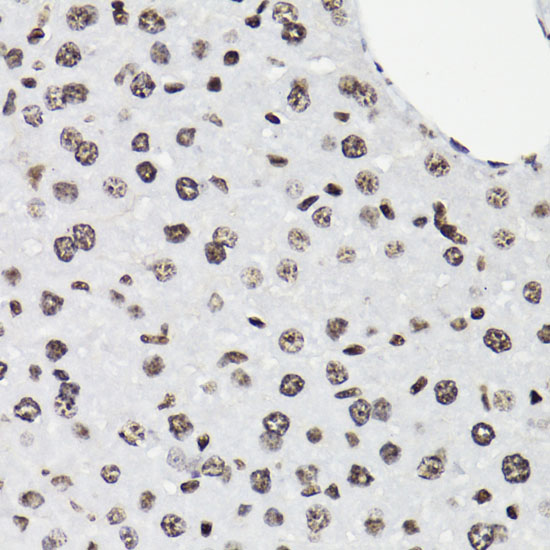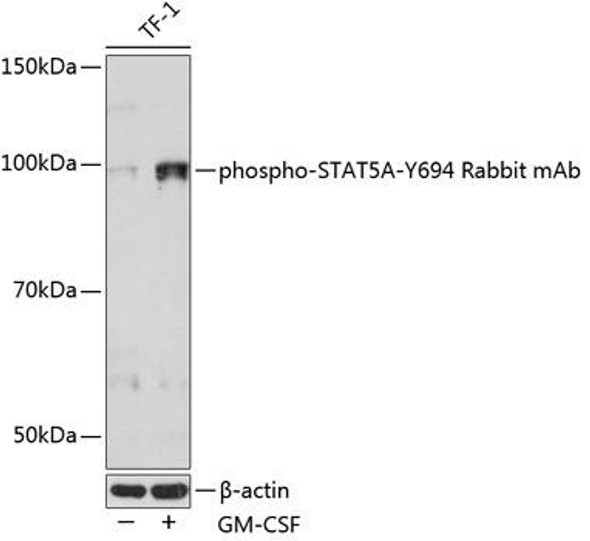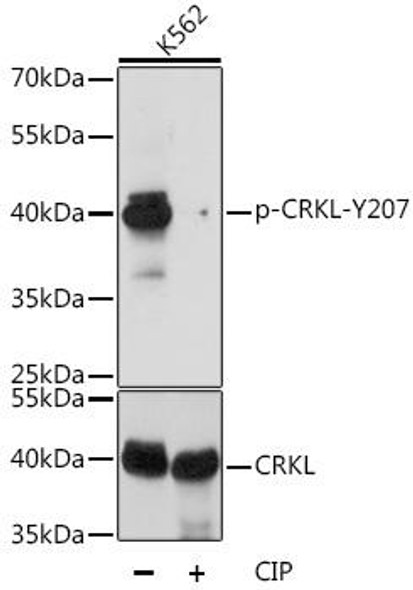Cell Biology Antibodies 16
Anti-Phospho-STAT5-Y694 pAb Antibody (CABP0887)
- SKU:
- CABP0887
- Product Type:
- Antibody
- Applications:
- WB
- Applications:
- IHC
- Reactivity:
- Human
- Reactivity:
- Rat
- Host Species:
- Rabbit
- Isotype:
- IgG
- Research Area:
- Cell Biology
Description
| Antibody Name: | Anti-Phospho-STAT5-Y694 Antibody |
| Antibody SKU: | CABP0887 |
| Antibody Size: | 20uL, 50uL, 100uL |
| Application: | WB IHC |
| Reactivity: | Human, Mouse, Rat |
| Host Species: | Rabbit |
| Immunogen: | A phospho specific peptide corresponding to residues surrounding Y694 of human STAT5. |
| Application: | WB IHC |
| Recommended Dilution: | WB 1:500 - 1:2000 IHC 1:100 - 1:200 |
| Reactivity: | Human, Mouse, Rat |
| Positive Samples: | K562 |
| Immunogen: | A phospho specific peptide corresponding to residues surrounding Y694 of human STAT5. |
| Purification Method: | Affinity purification |
| Storage Buffer: | Store at -20°C. Avoid freeze / thaw cycles. Buffer: PBS with 0.02% sodium azide, 50% glycerol, pH7.3. |
| Isotype: | IgG |
| Sequence: | Email for sequence |
| Gene ID: | 6776/6777 |
| Uniprot: | P42229/P51692 |
| Cellular Location: | |
| Calculated MW: | 90kDa |
| Observed MW: | 90kDa |
| Synonyms: | MGF, STAT5, stat5a/stat5b |
| Background: | The protein encoded by this gene is a member of the STAT family of transcription factors. In response to cytokines and growth factors, STAT family members are phosphorylated by the receptor associated kinases, and then form homo- or heterodimers that translocate to the cell nucleus where they act as transcription activators. This protein is activated by, and mediates the responses of many cell ligands, such as IL2, IL3, IL7 GM-CSF, erythropoietin, thrombopoietin, and different growth hormones. Activation of this protein in myeloma and lymphoma associated with a TEL/JAK2 gene fusion is independent of cell stimulus and has been shown to be essential for tumorigenesis. The mouse counterpart of this gene is found to induce the expression of BCL2L1/BCL-X(L), which suggests the antiapoptotic function of this gene in cells. Alternatively spliced transcript variants have been found for this gene. |


